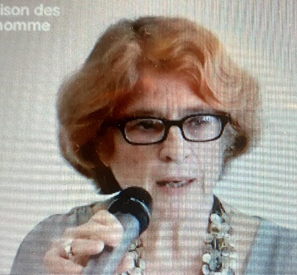 Josiane BOUTET
Josiane BOUTET
Josiane Boutet is a Professor Emeritus at the Sorbonne University. She was one of the founders of sociolinguistics in France in the 1970s. For many years, she directed the multidisciplinary journal Langage & Société, which she co-founded in 1976. She contributed to the creation of the study of language at work, a multidisciplinary scientific field that she developed through numerous publications, articles and books, most notably in 2008, La vie verbale au travail. Des manufactures aux centres d’appels. In 2016, she published Le pouvoir des mots (new edition, La Dispute), a linguist's political book describing, through the examination of numerous historical and political situations, the inherent power of language practices; and this, by means of different linguistic procedures (argumentative, rhetorical, discursive, etc.). The book was aimed at both the professional research community and citizens confronted in their daily lives with the uses and misuses of words, and the effectiveness of discourse; and it was received as such, the author having been invited to numerous political and trade union debates. Her latest work, Marcel Cohen. Linguiste engagé dans son siècle (1884-1974), published in 2024 by Lambert-Lucas, is devoted to the biography of this great linguist, somewhat forgotten in academic memory, who was, among other interests and skills, one of the precursors of sociolinguistics in France.
Abstract_Josiane_Boutet_1.pdf
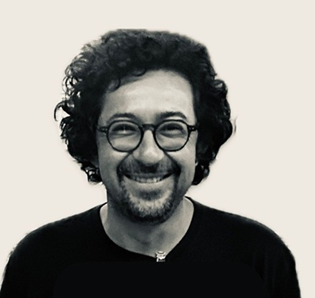 Victor CORONA
Victor CORONA
Victor Corona is a Mexican researcher (from Baja California) who has lived in Barcelona for 20 years. He has a Ph.D. in language and literature didactics from the Universitat Autònoma de Barcelona. His research focuses on the linguistic socialization of young Latinos in the European context, particularly in Barcelona, from an ethnographic perspective. His research explores the construction of "lo Latino" identity and the importance of rap and reggaeton in this process. He published several articles on these subjects in different languages. He also taught courses in linguistic anthropology at universities in Spain, France, the USA and Mexico. He currently works as a CNRS research engineer in the ICAR laboratory at the École Normale Supérieure in Lyon.
Abstract_Victor_Corona_1.pdf
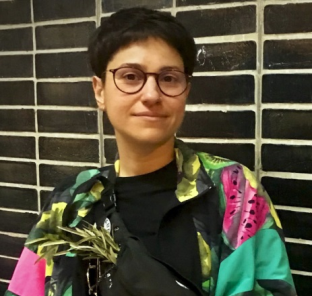 Manon HIM-AQUILLI
Manon HIM-AQUILLI
Manon Him-Aquilli is a lecturer in language sciences at the University of Franche-Comté. For her thesis, she worked on the general assemblies of the anarchist/autonomist movement in France. She is particularly interested in language reflexivity and the relationship between discursive activity and militant activity. She is currently co-editor-in-chief of the journal Tracés and is co-author with Cécile Canut, Caroline Panis and Félix Danos of Le langage, une pratique sociale (2018). She has also just coordinated, with Juliette Rennes and Marie Veniard, an issue of Langage et Société devoted to protest language practices captured from their backstage and margins.
Abstract_Manon_Him_Aquilli_1.pdf
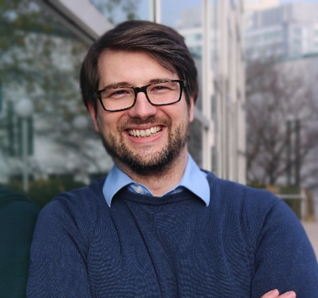 Maximilian KRUG
Maximilian KRUG
Since 2015, Maximilian Krug has been working as a research associate at the Institute of Communication Studies at the University of Duisburg-Essen. In 2020, Maximilian Krug completed his Ph.D. on the topic of "Simultaneity in Interaction: Multimodal Coordination Processes of Multiple Activities in Theater Rehearsals." Currently, he is leading the project "Incivility and Reactance in right-wing Telegram channels" and co-leading the project "Reactance as Interactional Practice and its Effects in Face-to-Face Situations" Additionally, Maximilian Krug is the project leader of the DFG project "Pronominal Personal Reference in Letter to the Editor in the GDR: Communicative Functions of Personal, Indefinite, and Possessive Pronouns for Establishing Social Group Categorization in an Authoritarian System”
abstract_Maximilian_Krug_1.pdf
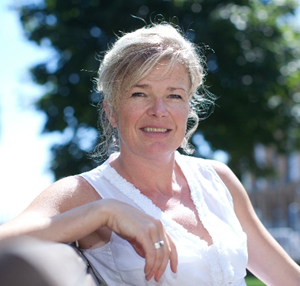 Simona PEKAREK DOELHER
Simona PEKAREK DOELHER
Simona Pekarek Doelher is a Professor of Applied Linguistics at the University of Neuchâtel (Switzerland). Her research investigates how participants in face-to-face communicative exchange use linguistic and bodily resources (looks, gestures, etc.) to perform and coordinate social actions, and how, in turn, these resources emerge from the interaction process itself. Her current research interests include the development of second-language interaction skills, grammar-in-interaction from a multimodal perspective, and methodological issues related to the longitudinal study of social interactions. She has recently co-edited the following collections : The grammar-body interface in social interaction (Frontiers in Psychology/Communication, 2022), Longitudinal studies in Conversation Analysis(ROLSI, 2021), Early responses: Projection and the temporal coordination of actions (Discourse Processes, 2021).
Abstract_Simona_Pekarek_Doehler_1.pdf
